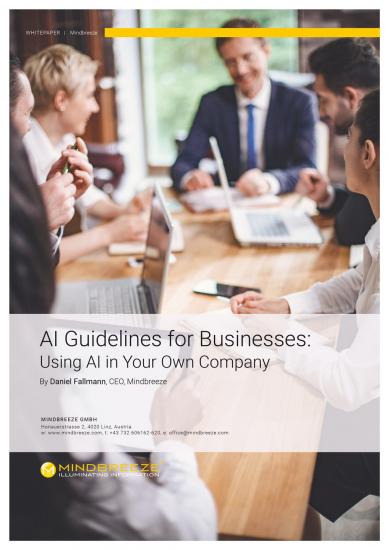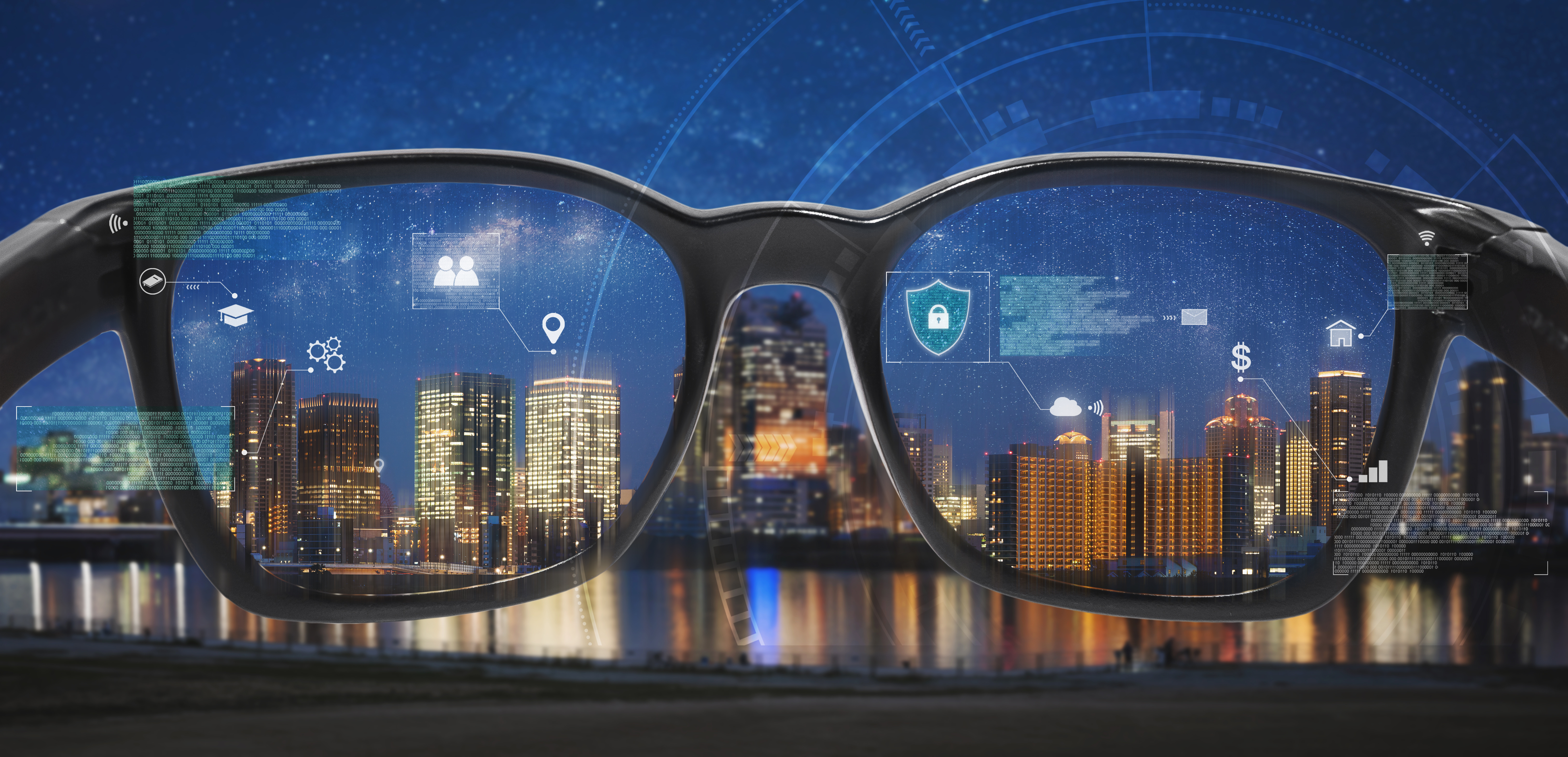Dynamic duo: Artificial intelligence and augmented reality
Imagine for a moment that you are going to an unfamiliar supermarket for the first time. If you are someone who isn’t visually impaired, you just have to look around to get your bearings and recognize the various objects and obstacles. People with visual impairment, however, have to make use of other senses to navigate their way through the new space.
But what would happen if the objects in that space could communicate with them and serve as a kind of navigation aid?
The progress being achieved in the fields of artificial intelligence (AI) and augmented reality (AR) is already so advanced that things like giving objects a “voice” are possible today. Video and film footage that has been recorded in real time with the help of AR-glasses can be translated acoustically and used to help visually impaired individuals find their way through unfamiliar surroundings more easily.
What is AR?
As the name suggests, augmented reality (AR) has to do with adding virtual content to real-world content. This way, information can be intelligently collected and visualized or – as in the above example – translated into sound. Sound, text, graphics, images, and even videos can be superimposed onto the real world so that users are able to hear or see real or virtual objects right in front of their eyes and can interact with them as well.
The advantages of these technologies also open up a number of new possibilities in other areas. In response to the competitive pressure that prevails in most industries and the exacting quality demands of customers, companies are increasingly turning to AR to support their business objectives and sharpen their competitive edge. Be it in logistics, production, or customer service: AR has a wealth of practical applications and is opening up new opportunities for professionals across a multitude of industries. Employees working in maintenance are visualizing machines in order to optimize repairs, warehouse logisticians are using Pick-By-Vision for picking, surgeons wear AR glasses when operating, and new ways to advertise based on this technology could gain a foothold in marketing.
Connecting the data – the ground AR is built on
Of course, you can’t upgrade reality into this promising high-tech world unless you have the database and computing power to handle it. The information required to do this is usually already available somewhere in the company, but is typically scattered across a wide range of data sources and formats. Since mobile devices like AR glasses and smartphones aren’t yet capable of processing this data to the extent required, intelligent technologies coupled with computing power are necessary to provide the user with the data required for AR at the right time and in the right context.
This is where insight engines come into play. They make it possible to process and manage the company’s existing data resources rapidly and efficiently, while mobile devices such as smart glasses or smart phones serve as tools for visualization and interaction.
Insight engines make data AR-ready
Unlike conventional search solutions, insight engines use artificial intelligence to perform more efficiently.
Techniques such as machine learning, deep learning, and speech recognition guarantee that relevant information and content is not only located, but also provided proactively and in the right context. This equips AR devices with precisely the database they need to transform the way we learn to play and, more importantly, the way we work.
 Have you ever considered where artificial intelligence could be implemented in your business? You may find that the practical tips in our AI Guide for Business can offer valuable input:
Have you ever considered where artificial intelligence could be implemented in your business? You may find that the practical tips in our AI Guide for Business can offer valuable input:
Download White Paper
Latest Blogs
Inside Insight: How Journeys and Touchpoints Make Enterprise Search Effortless with Mindbreeze Insight Workplace
Picture this: you’re preparing for a high-stakes client meeting.
The Future of Enterprise AI Depends on Smarter RAG Solutions
Today’s enterprise leaders ask how to make AI meaningful, responsible, and scalable. One architectural approach stands out as organizations look beyond isolated proof-of-concepts and begin embedding AI into workflows: Retrieval-Augmented Generation (RAG).


